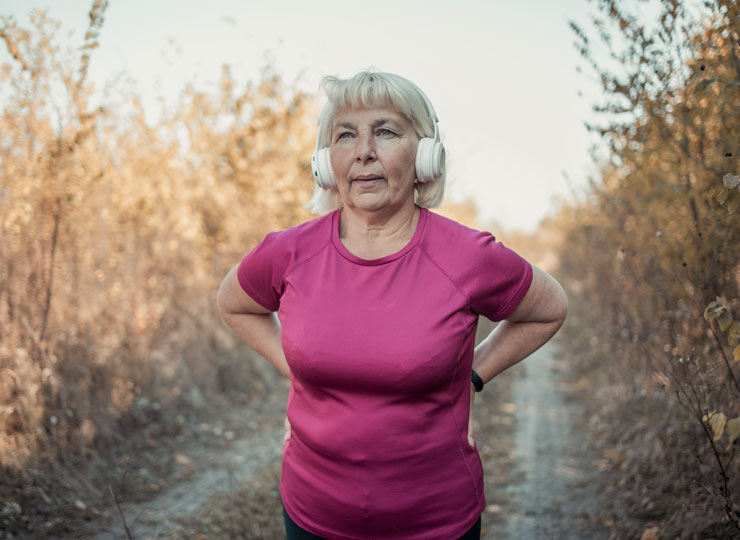
August 10, 2022
Numerous studies suggest that regular physical activity and cognitively challenging activities like reading and doing crossword puzzles may bolster the brain and help delay the onset of Alzheimer’s disease. Now a new study suggests that these activities may be particularly beneficial for women.
The study looked at cognitive reserve, or the brain’s ability to utilize strong neuronal connections from the past in a way that tempers the effects of Alzheimer’s disease and other forms of dementia. Researchers looked at the effects of exercise and mentally stimulating activities like reading, attending classes, and playing cards or word games on “thinking speed,” a key component of cognitive reserve.
“We found that greater physical activity was associated with greater thinking speed reserve in women, but not in men,” said study author Judy Pa, of the University of California, San Diego. “Taking part in more mental activities was associated with greater thinking speed reserve for both men and women.” The findings were published in the journal Neurology, from the American Academy of Neurology.
For the study, the researchers looked at 758 men and women whose average age was 76. Some were free of thinking or memory problems, while others had dementia or mild cognitive impairment, which may lead to dementia down the road. Study participants took tests that measured their thinking speed and memory skills. They also had brain scans to look for signs of dementia, such as reduced volume of the hippocampus, a brain region critical for memory that is affected early in the course of Alzheimer’s disease.
To assess their mental activity, researchers asked participants whether they had engaged in three types of activities in the preceding year: reading newspapers, magazines or books; attending classes; and playing cards, games or bingo. Each type of activity was equal to one point, for a total of three points. On average, participants scored 1.4 points overall. Taking part in more mental activities improved thinking speed for both women and men.
Participants were also asked whether they got at least 15 minutes of aerobic exercise a week, such as brisk walking or cycling. Women, but not men, had greater cognitive reserves if they exercised regularly and took classes, read or played games. Dr. Pa said that based on the effects seen in the study, a doubling of the amount of physical activity would be equivalent to an estimated 2.75 fewer years of aging when it comes to women’s processing speed in their thinking skills.
“To know that people could potentially improve their cognitive reserve by taking simple steps such as going to classes at the community center, playing bingo with their friends or spending more time walking or gardening is very exciting,” Dr. Pa said.
The researchers also looked at how carrying the APOE-e4 gene, which increases the risk for Alzheimer’s disease, affected the results. They found that the gene dampened the added benefits of physical and mental activities on cognitive reserve in women.
While this study did not find that at least 15 minutes of weekly exercise boosted thinking speed in men, many other studies have shown that regular physical activity is good for the brain and may help to curb the onset of Alzheimer’s disease in both men and women. Experts say it is never too late to reap the brain benefits of exercise and mental stimulation.
More research is needed to determine how gender affects brain health, and whether certain activities may benefit women more than men. In the meantime, experts urge us to stay active and to challenge the brain with new activities that can help keep the brain young.
By ALZinfo.org, The Alzheimer’s Information Site. Reviewed by Marc Flajolet, Ph.D., Fisher Center for Alzheimer’s Research Foundation at The Rockefeller University.
Source: Judy Pa, PhD; Vahan Aslanyan, BS; Kaitlin B. Casaletto, PhD; et al: “Effects of Sex, APOE4, and Lifestyle Activities on Cognitive Reserve in Older Adults.” Neurology, July 20, 2022











